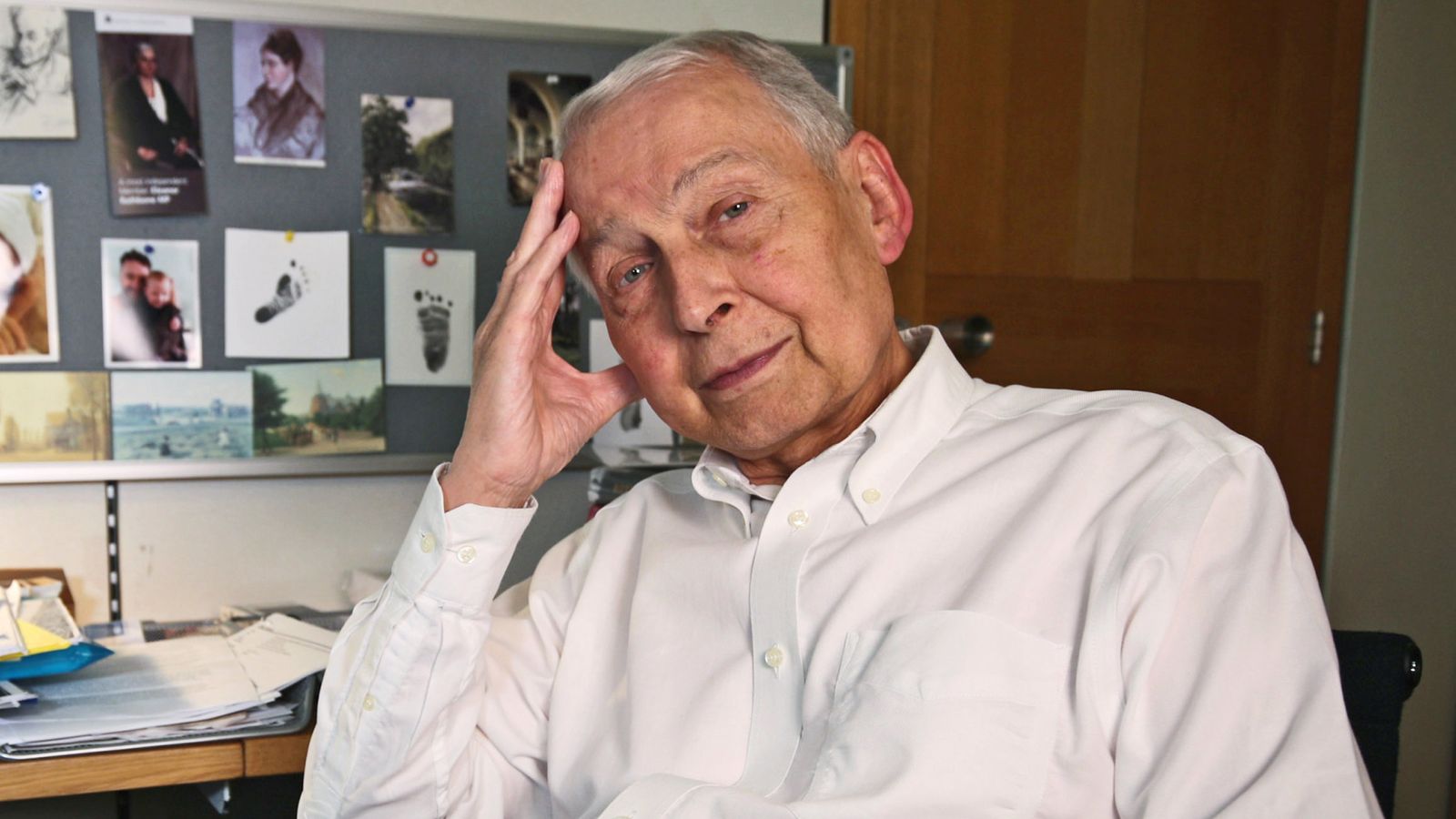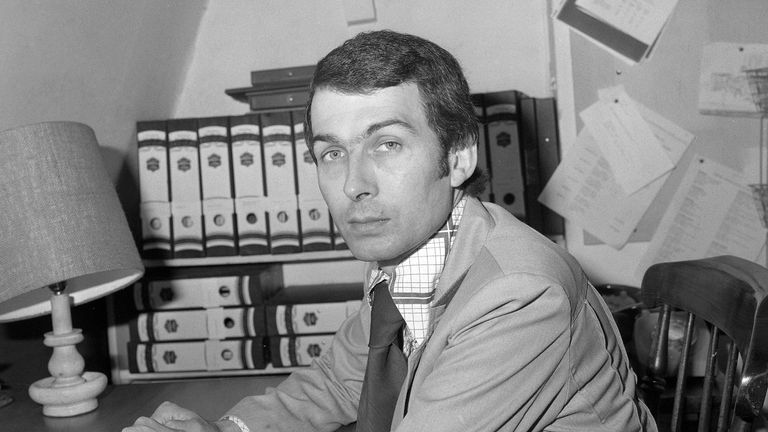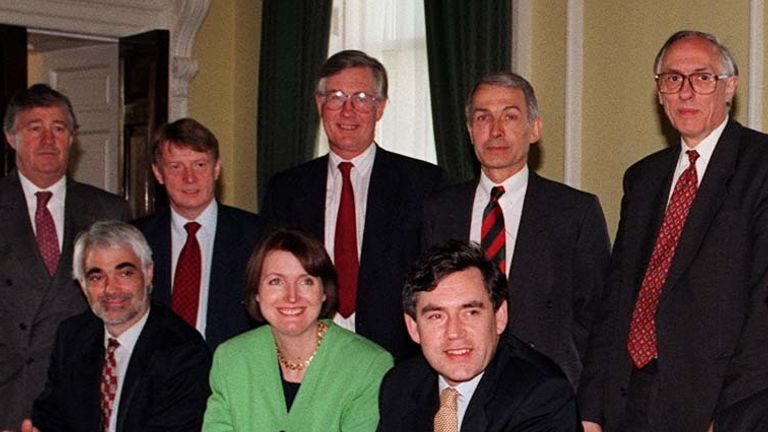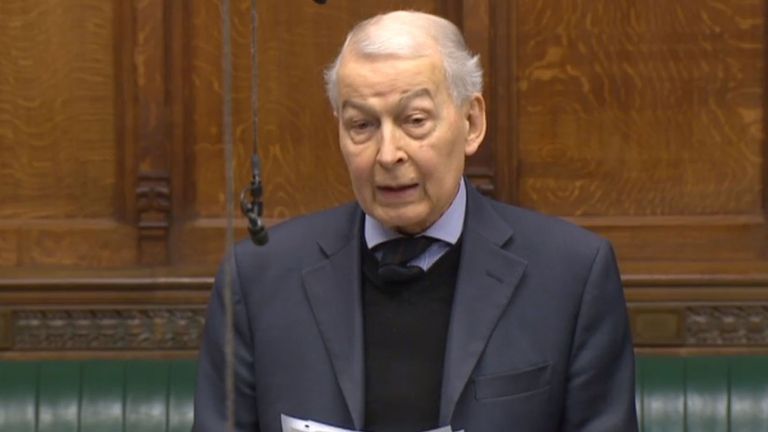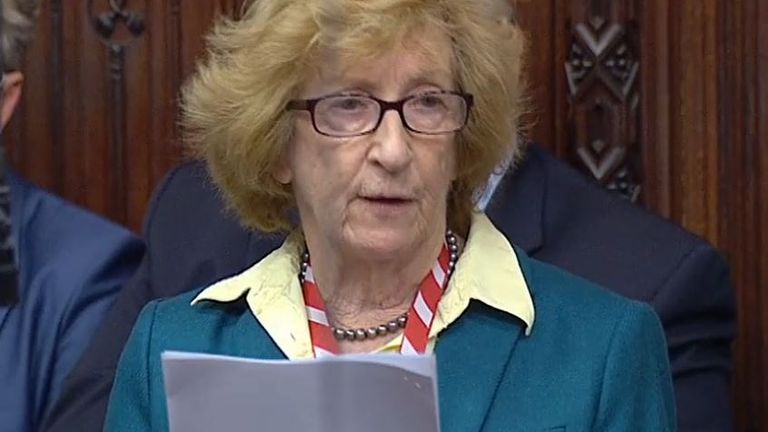Frank Field, the former Labour MP and minister, has died at the age of 81.
A statement from his family said: “He will be mourned by admirers across politics but above all he will be greatly missed by those lucky enough to have enjoyed his laughter and friendship.”
Mr Field was asked to “think the unthinkable” to reform welfare by Sir Tony Blair in 1997, but he only lasted a year in the role before clashes with other ministers – including Gordon Brown – saw him return to the backbenches.
Having left the Commons in 2019, Mr Field was later diagnosed with terminal cancer and briefly admitted to hospice care in 2021.
His health had continued to decline, and he swore his oath to the King earlier this year in the House of Lords from a wheelchair.
Early life and becoming an MP
Mr Field was born on 16 July 1942.
He was first elected as the Labour MP for Birkenhead in Merseyside in 1979.
He grew up in London in a working class family, and was a supporter of the Conservative Party in his teenage years, but was thrown out after he opposed apartheid in South Africa.
Mr Field went on to join the Labour Party as a teenager.
After attending grammar school and Hull University, he returned to London and was a councillor in west London in the 1960s.
After losing his seat in 1968, he was director of the charity Child Poverty Action Group until 1979, when he entered parliament as the MP for Birkenhead.
The Labour Party was in the political wilderness for his first years in parliament, and Margaret Thatcher maintained a firm grip on power.
But oddly enough Mr Field still became a regular visitor to Downing Street.
Long before Sir Tony’s new dawn broke with his 1997 election win, the Labour MP was entering Number 10 as he and Mrs Thatcher struck up an unusual friendship.
Mr Field visited her in 1990 to tell her that she was finished and needed to stand down – and they stayed friends afterwards.
‘Think the unthinkable’
By the time New Labour swept to power, Mr Field was known for his campaigning on welfare and helping the poorest in society.
He was brought into the government as the minister for welfare reform – and asked by Sir Tony to “think the unthinkable”.
But he clashed with then chancellor Gordon Brown.
His Christian faith led Mr Field down the path of believing that humans need to be saved from base instincts – and the government should help them do this.
This included believing that too generous a benefits system would no doubt trap people who saw it as a simpler and more lucrative alternative to the labour market.
Ultimately, the rows with Mr Brown – and social security secretary Harriet Harman – saw Mr Field leave the government in 1998.
Return to the backbenches
Despite losing his role in government, Mr Field continued to intervene and voice his opinions on how he believed the welfare system should work.
By the tail end of Labour’s time in office he was dissatisfied with the leadership of Mr Brown, who had succeeded Sir Tony as PM in 2007, and agitated for him to step aside.
Come 2015, he nominated Jeremy Corbyn to be the party’s leader as he believed there needed to be a plurality of voices heard.
But he was not a natural ally of the Corbyn regime when it did take over.
Mr Field was a supporter of Brexit, as he believed freedom of movement was having a negative impact on the UK’s Labour market, among other reasons.
He voted against Labour on pieces of Brexit legislation, and ended losing a vote of confidence in his Birkenhead constituency party in 2018.
Just over a month later, he resigned the Labour whip and took a swipe at how the party dealt with antisemitism as he left.
He continued to support Brexit in the House of Commons, and in the 2019 election stood as an independent but lost to the Labour candidate.
Illness and death
In 2021, Mr Field announced he was terminally ill and revealed he backed assisted dying.
He spent time in a hospice, and a speech in support of the terminal policy was read out in the House of Lords on his behalf, having joined the upper chamber in 2022 as a crossbench peer.
Mr Field never married and had no children.
